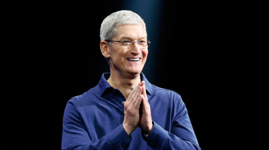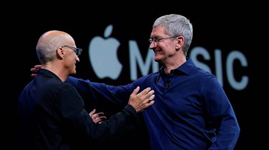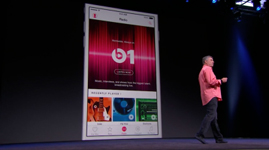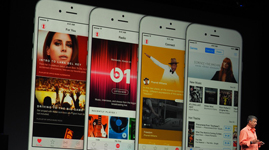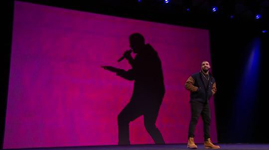 Apple launched Apple Music on June 30th, 2015. The music streaming service allows users to select music to stream to their device on demand.
Apple launched Apple Music on June 30th, 2015. The music streaming service allows users to select music to stream to their device on demand.
Apple Music is the company's first attempt to rival Spotify, by creating the first un-Apple product.
The service includes the curated internet radio station Beats 1 and the blog platform Connect for artists to share media with fans. With music recommendations based on user tastes, Apple Music is closely integrated with iOS devices and Siri.
At the first glance, the Apple Music app has five tabs:
- For You: Users can see a selection of music they might like, based on their listening habits, the music they own, genres they chose and a few other factors.
- New: This is where the user can select editorially curated music across the service.
- Radio: A place for Beats 1 and other stations live, along with iTunes radio's former channels.
- Connect: Apple's social network dedicated for music. Users can follow their favorite bands to get their latest updates.
- My Music: Represents the user's library. This is where Apple combines music the tracks added from its streaming service.
Apple Music was first stated at the Apple Worldwide Developers Conference. The company said that the service would be free for the first three months, and would cost $9.99 a month after that.
Apple Music works by recommending music based on the user's taste. And for that to happen, it needs time to learn. Users can select a music from their device, and the music can be then played via internet streaming or saved for offline access.
While Apple Music's cost and music library are similar to other music streaming services that it comes to compete with, Apple Music wants to distinguish itself from others by adding features and exclusive contents.
With Beats 1 as the first station, Apple Music can play music continuously in 100 countries. With internet radio curated by famous artists, Apple is confident that the service has an advantage over others. The next big thing is Beats Connect, which is a blog platform where artists can share media with their fans.
With those features closely integrated with Siri, users can also requests specific songs and top charted tracks, for example.
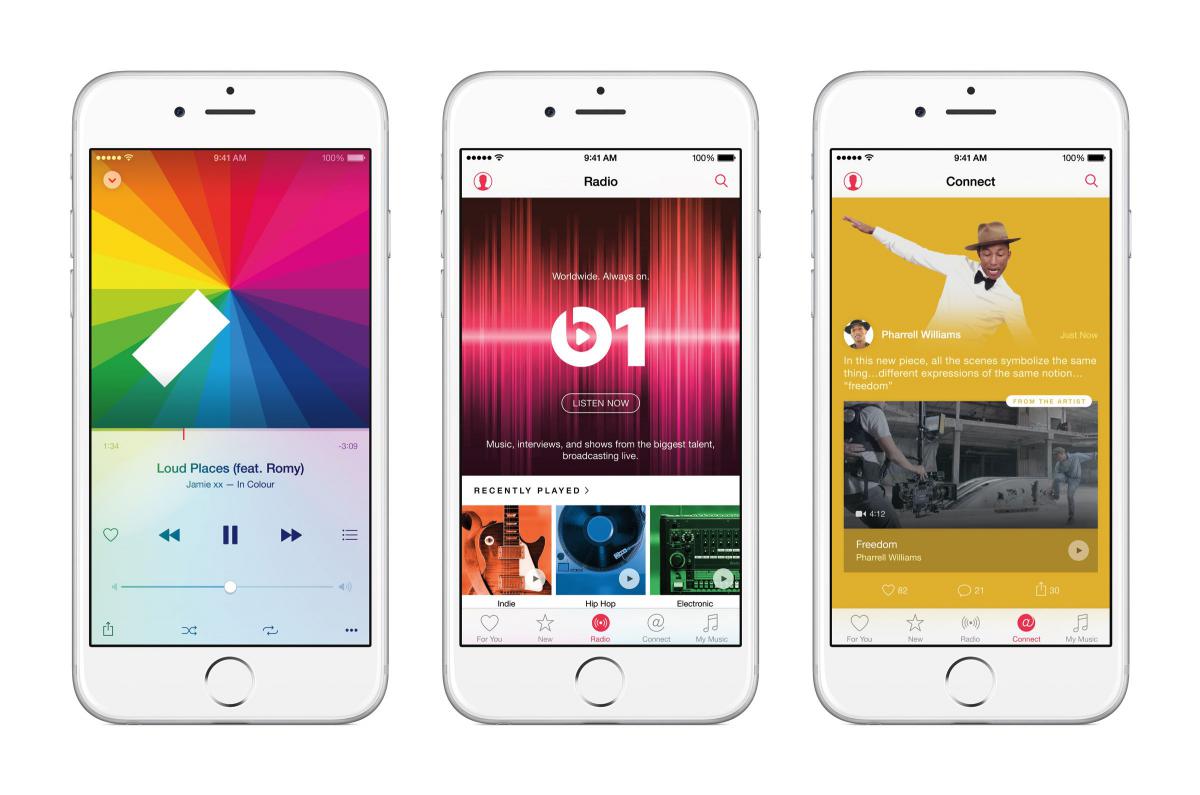
A Library of Experience
Apple is always into music. From the beginning of time, the company launched the iPod, a product that became so popular that it was able to replace Sony's Walkman as the most popular portable audio players. With iTunes and many more ventures, including the company's acquisition of Beats, music is one of the things that built Apple, and made it at its very best.
With Apple Music, users can create a library to hold their music, acting as a central repository. With features added, things that are missing from Apple Music can be added by purchasing them on iTunes. By managing iTunes as a brand behind its music, this is where Apple beats Spotify.
Other competitors such as Google Play Music, is what comes close to Apple Music. The Google's service allows users to upload music and create a centralized place for music. But Apple somehow managed to create a better one.
Creating Back the Experience
As a conclusion, Apple Music is promising. As a service closely tied to Apple, iOS and iTunes, it can't be neglected. Apple Music can be seen as a critical point for the music industry. iTunes was Apple's way to shift traditional means of listening and purchasing of music, to a digital one. And with Apple Music, Apple is putting the streaming media, up to the front.
Apple's advantage with its streaming service is that thanks to Apple's own mobile devices, Apple Music comes included on hundreds of millions of phones. This in turn will make the service able to reach millions of people for the first time, without much of a hassle.
Apple Music is at the artists' mercy. Furthermore, Apple Music that is coming from a company well-known for its innovations, isn't at all revolutionary. It's far from the world's first streaming service, and has a long way to go to become the best.
While iTunes fundamentally changed people's relationship with music, paving the road for Spotify, Rdio, and others. Apple with iTunes and the iPod had "revolutionized digital music".
Despite former Apple CEO Steve Jobs previously opposed to the idea of music subscription services, what makes Apple Music groundbreaking is not how it can be phenomenal, but it's because how and why it was born: Apple wants to recapture the moments when it won over the Walkman, and it wants people to feel the spirit of the iPod once again.
